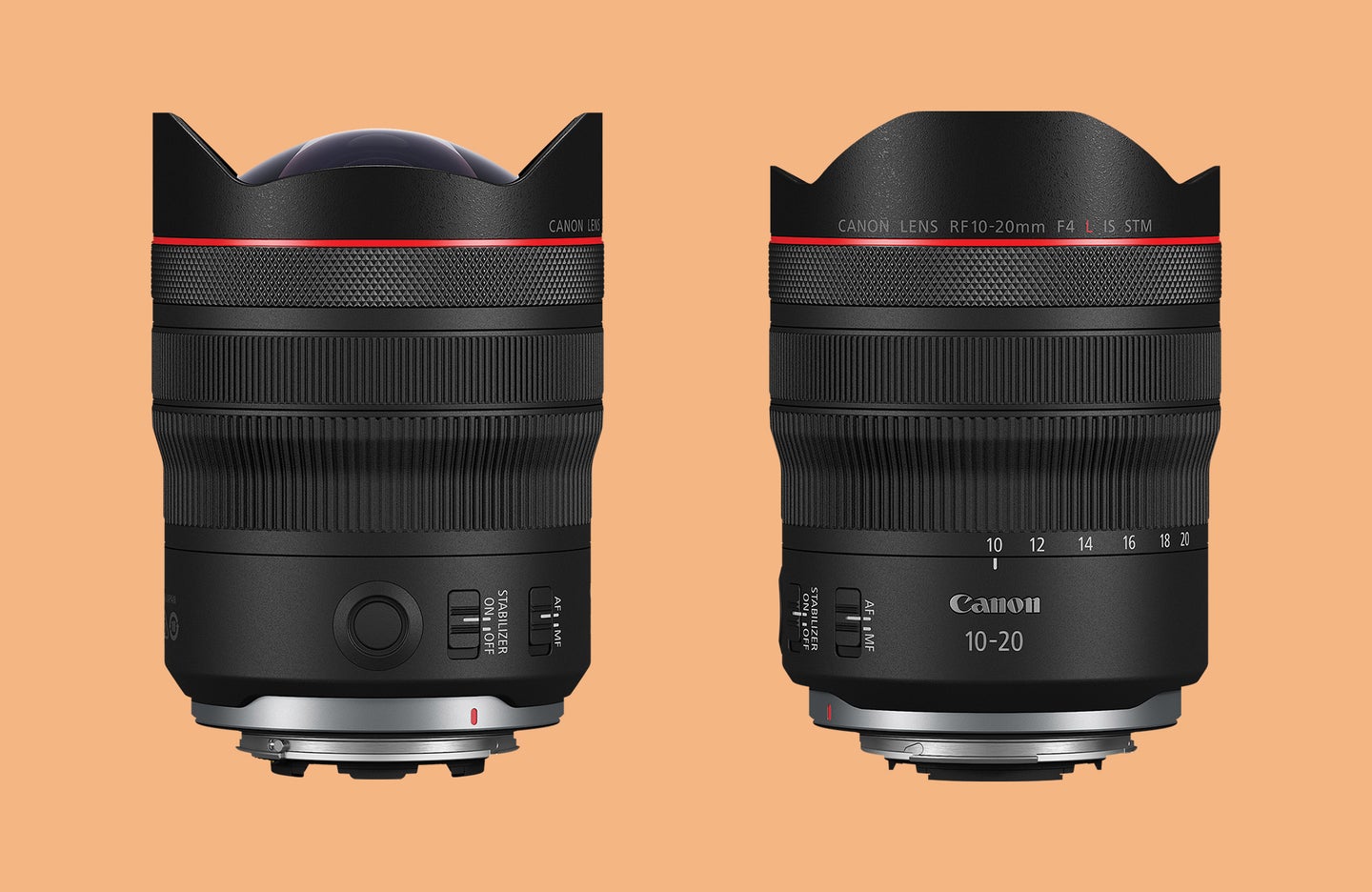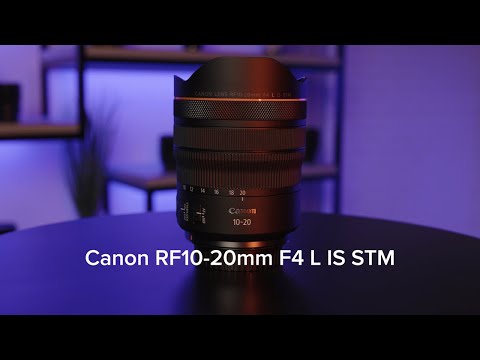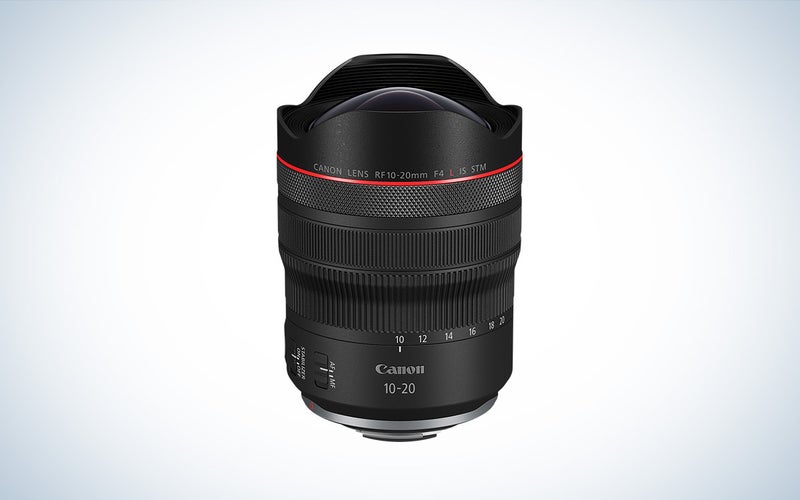New gear: Canon RF 10-20mm f/4 L IS USM super-wide-angle zoom lens
Canon's widest RF lens features a rectilinear design to keep distortion in check.

Thus far, the options for wide-angle lenses on Canon’s mirrorless system have been fairly limited. The widest zoom lens available was the RF 14-35mm f/4 L IS USM lens. But now, Canon has expanded its offerings with its widest lens for the RF system yet, covering twice the angle of view as the 14-35mm at its wides setting. The Canon RF 10-20mm f/4 L IS USM lens is the first autofocus zoom lens with 10mm coverage across any brand. It will be an ideal choice for architecture, landscape, and travel photography, or any other genre requiring serious visual drama. Here’s what we know about the lens so far.
Canon RF 10-20mm f/4 L IS USM at a glance
- Weighs 1.25 pounds
- 5 stops of image stabilization, 6 stops when combined with IBIS
- 10-inch minimum focusing distance
- Weather sealed
- Rectilinear design for minimal distortion
- $2,299.00
- Available early November

Canon RF 10-20mm f/4 L IS USM optical design
First thing first, despite the ultra-wide angle, Canon’s RF 10-20mm lens is a rectilinear lens, not a fisheye. It features one Super UD element, three standard UD elements, and three aspherical elements to reduce chromatic aberration and distortion. That means that it is a viable option for architectural or interior photographs, as distortion looks to be handled really well. These elements also result in superb sharpness and illumination across the entire image area.
Canon also built the lens with ASC (Air Sphere Coating) and SWC (Subwavelength Structure Coating), which reduce flare, ghosting, and other aberrations. These coatings will increase contrast and color accuracy, providing rich, vibrant images. There’s also an FLC fluorine coating to repel dust, water, grease, and dirt.
Although ultra-wide-angle lenses aren’t exactly known for their bokeh, the RF 10-20mm contains a nine-blade diaphragm for round and pleasing bokeh when conditions are right.

Handling & build
As an L-series lens, Canon built this lens with plenty of features to improve handling. It features a programmable control ring that can be set to control exposure settings such as aperture, ISO, or exposure compensation. You’ll also find a lens function button, image stabilization on/off switch, and focus switch, all of which keep you from digging in the camera menus quite as often.
As is typical on ultra-wide lenses, the front element of the RF 10-20mm is bulbous, which means that it does not accept traditional front filters. But Canon did include a rear filter holder. It accepts gelatin filters that you will need to cut down to size and place behind the rear lens element, but it does at least allow you to use filters. Canon also included a built-in petal-shaped lens hood to protect that protruding front element. It is sealed against dust and moisture to protect it from the elements.
Canon managed to keep the size of this ultra-wide zoom very reasonable. It weighs just 1.25 pounds, which is almost half the weight of the EF 11-24mm. It measures 3.3 by 4.4 inches, which is roughly the same size as the RF 24-105mm.

RF 10-20mm f/4 L IS USM autofocus & stabilization
It isn’t very common to see built-in image stabilization (IS) in lenses of this class. In fact, Canon is the only brand to offer in-lens IS in a lens wider than 14mm. The Optical Image Stabilizer can reduce the appearance of camera shake by up to five stops. Or, if you pair it with an EOS R camera with in-body image stabilization (IBIS) for Coordinated IS, you’ll get up to six stops of correction.
The in-lens IS certainly helps improve images when shooting with slow shutter speeds in low-light conditions. But it also improves blurring and deformation in the periphery. Both of those tend to be weak spots in ultra-wide-angle lenses, so it is nice to see it addressed.
In terms of focus, Canon built the 10-20mm with an STM leadscrew-type focus drive system. You’ll typically find this type of focus motor in entry-level lenses. But it is fast and smooth enough to keep up with high-speed cameras. Plus, this motor allowed Canon to keep the weight and size of the lens down. Additionally, it features a position sensor that returns to the previous focus area when you start the camera back up, making it faster to get back to shooting if you’re working with the same subject or scene.
The RF 10-20mm can focus as close as 9.8 inches at all focal lengths, enabling unique ultra-wide closeup shots.
Canon
Pricing & availability
The Canon RF 10-20mm f/4 L IS USM lens is available for pre-order now for $2,299.00. It will begin shipping on November 2.

